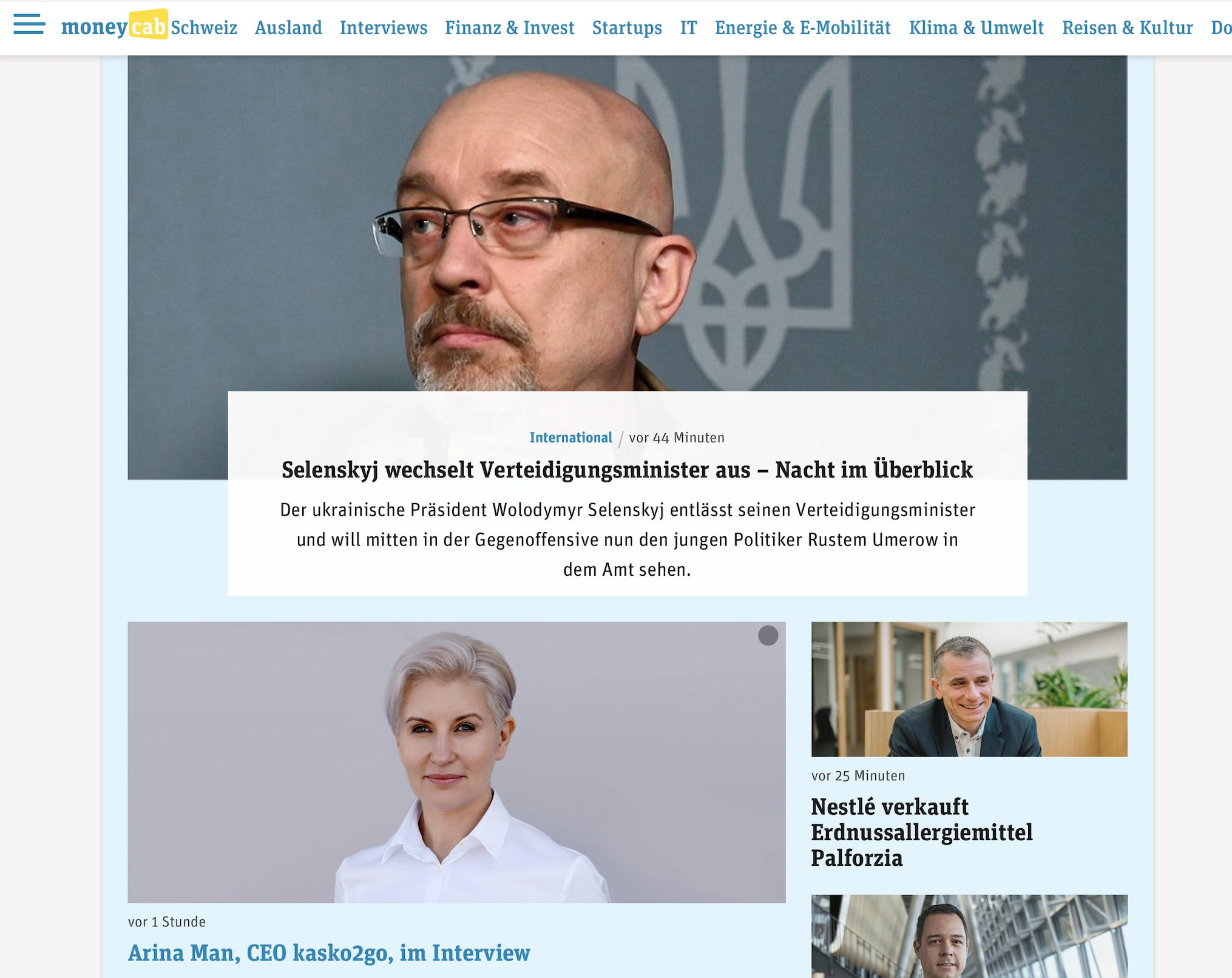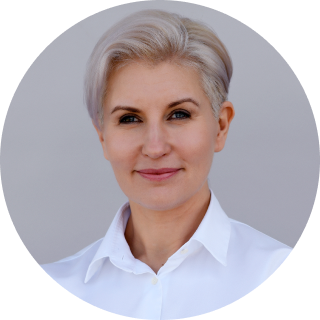“With the help of AI, kasko2go was able to reduce the claims rate in the insurance industry by up to 6%! The combination of Swiss precision and Israeli tech talent is revolutionizing risk management." Learn more about Arina Man CEO of kasko2go's exciting insights into the future of insurance and AI! Discover how AI not only increases efficiency but also paves the way for more transparent, equitable and customer-centric insurance solutions.
https://www.moneycab.com/interviews/arina-man-ceo-kasko2go-im-interview/

By moneycab
04 September 2023, 07:00 AMBy Helmuth Fuchs
Moneycab: Mrs. Man, as a Swiss-Israeli company, kasko2go has been offering solutions that use artificial intelligence to improve risk management in insurance companies since 2017. Where have you already been able to use the solution and how have the improvements made themselves felt in concrete terms?
Arina Man: We were able to show that by using alternative data and advanced modeling techniques, we can reduce the loss ratio by up to 6% (example: from 65% to 59%) without losing market share. The ability of our models to segment policyholders has allowed us to align pricing changes so that the best policyholders receive discounts and those who are high risk pay more. This leads to a rate system where everyone bears their own risk and no one has to subsidize the worst policyholders.
"We were able to show that by using alternative data and advanced modeling techniques, we can reduce the loss ratio by up to 6% (example: from 65% to 59%) without losing market share." Arina Man, CEO kasko2go
So far, the focus has been on motor insurance. Insureds should be able to identify risks at an early stage through data-driven risk analysis. Where are you in the implementation of the plan? What are the next developments?
As mentioned in the previous question, the system is ready for use and is currently being rolled out across Europe.
Artificial intelligence can also be particularly helpful in automating data cleansing and data structuring of large data sets, such as those generated in the kasko2go solutions. How do you use artificial intelligence in your solutions? Will specialists still be in demand in the future?
There is a lot of talk today about AI replacing specialists. We don't see it that way; AI is just another professional tool that will make everything more efficient so that we as a human race will be able to do more, achieve more and build more with the same resources.
In our solutions, we use AI wherever it is robust enough to deliver useful results. AI is inherently statistical and not deterministic like normal software, which means AI is easiest to use in statistical applications. In our risk assessment, we use AI techniques (ML) to produce better results for our customers. In sales, marketing, and software development, we use AI to get more done with the same team and keep us lean, and in our future internal and external products, we use AI to interface with the software we develop.
"There is a lot of talk today about AI replacing specialists. We don't see it that way; AI is just another professional tool that will make everything more efficient."
Let's say you get new software that does your taxes, for example. Today, you have to learn the basics before you can use the software. That's insufficient because it limits you to using only the software you already know; think Apple and Android users. But imagine if you didn't have to learn how that software works, you could just tell it what to do and it would just do it. I mean, using your language, your natural language, to communicate with a machine is revolutionary; it changes everything about software and the interface between humans and computers. That's why all of our products have already been developed with AI in mind - not just LLMs, but any model that can improve our performance and is so reliable that we use it.
Risk management is not just a topic for insurance companies. In what other areas could the kasko2go solution also be used? What plans do you have to expand business activities in these areas?
There are a large number of ways in which we could scale in other areas. There is virtually no industry in the world that doesn't require data cleansing and consolidation or merging of different formats onto the same platform for transparent and understandable analytics. This will be a very important task for us.
At the same time, our algorithms can assess risk not only in auto insurance, but also in any other insurance for the same subscriber for whom we can calculate auto insurance.
So far, you have been able to deploy your solution in five European countries. Where do you see the biggest growth opportunities for kasko2go?
We are currently, thank God, very busy. I can tell you that by the end of the year we will have over 50% market share in Israel, over 50% in the Baltic States, over 30% in Poland and so on. We will put significant emphasis in the Asian market starting next year, but of course our focus will remain in Europe.
ChatGPT as an example of a successful LLM (Large Language Model) application has caused a real boom in recent months. Where is this technology used in your solution and what are your experiences with it so far?
ChatGPT is an example of what LLM can do in its pure, application-less form. As mentioned in previous questions, we use LLMs both as users, where we interact with them and they help us write better text and software and answer questions about our articles as users, and hidden as a layer within our applications, where they help us keep our log clean, our databases organized, and the data we receive from our customers structured so we can then model it.
You do business in both Israel and Switzerland. Where do you find the better conditions, and how can the two countries benefit from each other?
That's a very interesting question. Thank you very much. In Israel we have the best engineers in the world and that's not a joke, that's a fact. In Switzerland we have the best business environment in the world, again, not a joke. So if we were a company that operated only in one of these countries, we would be either very technical or very business. But we're both, and that's what makes us different.
The growing importance of data and artificial intelligence in today's economy can no longer be ignored. To what extent does this influence your business strategy and planning?
It affects our business strategy and planning in every way. As you know, we have been a data-driven company from the beginning, but today, with everyone betting on data, it is becoming much more competitive and there is tremendous pressure to get better and better and stand out from the crowd. However, integrating data and AI into our business strategy has given us a clear advantage and we plan on maintaining and building on that edge.
"We will put significant emphasis in the Asian market starting next year, but of course our focus will remain in Europe."
You have already been in many interviews and answered numerous questions. Is there a question you always wanted to answer but were never asked?
Yes, in fact there is such a question, which is how we want to have a positive social impact: I hope that in a decade, we will have changed not just the insurance industry, but the whole way people think about risk and how they protect themselves from it.
At the end of the interview, you have two wishes. What do they look like?
Firstly, I would like our technology to be seen not just as a means to reduce costs, but as an opportunity to transform the insurance industry and put the customer at the center. Technology can help make insurance more transparent, equitable and user-friendly.
Secondly, I hope that our work will help raise awareness of the importance of data and artificial intelligence in the modern economy. In a world that is increasingly driven by data, businesses and individuals need to understand the importance of quality data and the use of AI to make decisions. It's not just about keeping up with the times, it's about creating real value for people.



